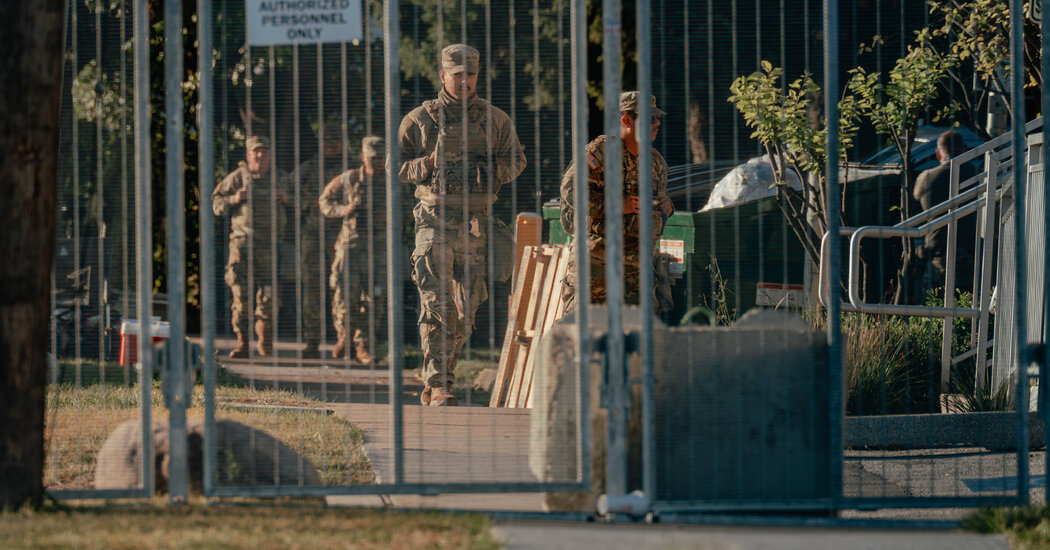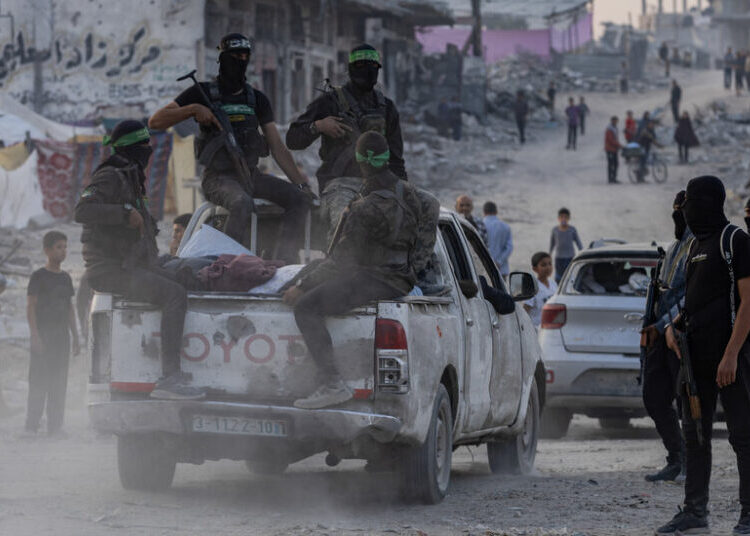The Pentagon is withdrawing hundreds of National Guard soldiers from Chicago and Portland, Ore., just weeks after President Trump ordered them there over the strenuous objections of state and local leaders, according to two U.S. officials.
Some 200 California National Guard troops who were sent to Portland and another 200 Texas National Guard members who were sent to Chicago will return to their home states beginning as early as Sunday, said the officials, who spoke on the condition of anonymity to discuss the deployments.
The federalized Guard troops arrived in those cities in early October but never deployed into the streets to assist federal law enforcement personnel and protect federal buildings, as the Trump administration envisioned, because of legal challenges that continue to play out in the courts.
With Thanksgiving and Christmas fast approaching and federal court orders putting a hold on the operational deployment of the Guard, top Pentagon officials decided last week to withdraw the out-of-state soldiers, at least for now, rather than have them continue to sit in a costly limbo separated from their families during the holiday season, one U.S. official said.
About 300 Illinois National Guard troops will remain activated in the Chicago area, as will about 200 soldiers from the Oregon National Guard in the Portland area, the officials said.
The Pentagon has not formally announced the impending Guard withdrawals, which were reported earlier by ABC News, but the military’s Northern Command indicated late on Friday that changes to the federalized troop mission in those cities were imminent.
The command offered no details, however, when it posted on social media that “in the coming days, the Department will be shifting and/or rightsizing our Title 10 footprint in Portland, Los Angeles, and Chicago to ensure a constant, enduring, and long-term presence in each city.”
The Texas and California Guard members had been activated on federal orders by Mr. Trump in early October and placed on active-duty status according to Title 10 of the U.S. Code. “Our troops in each city (and others) are trained and ready, and will be employed whenever needed to support law enforcement and keep our citizens safe,” Northern Command said in its statement on Friday.
Oregon officials were not immediately available for comment on the Pentagon’s decision. A federal judge in Portland earlier this month issued a permanent block on troop deployments to the city in response to demonstrations against Immigration and Customs Enforcement.
Matt Hill, a spokesman for Gov. JB Pritzker of Illinois, said state officials had not yet been notified of the Pentagon’s action.
“While there are reports the Texas guard is leaving, the Trump Administration is also saying they will keep federalizing national guards to ‘ensure a constant, enduring, and long-term presence’ in cities,” Mr. Hill posted on social media. “Illinois will continue fighting for our state sovereignty, protecting people’s rights, and keeping our communities peaceful.”
A federal judge in Illinois issued a temporary restraining order last month blocking the Trump administration’s deployment of National Guard troops in the Chicago area. An appeals panel later upheld the lower-court judge’s decision and the U.S. Supreme Court is now weighing the issue.
In California, officials in the office of Gov. Gavin Newsom, who spoke on the condition of anonymity because they were not authorized to discuss the federal deployment, said Northern Command had notified them that it would begin drawing down the California National Guard from Portland as early as Sunday.
A spokesman for the governor, Izzy Gardon, applauded the decision, but also condemned the deployment, which has gone on since June and has been authorized to extend into next year. Last week, California asked the federal court again to halt the deployment in that state and release the remaining 300 federalized California National Guard troops.
The president “never should have illegally deployed our troops in the first place,” Mr. Gardon said. “We’re glad they’re finally coming home. It’s long overdue.”
Shawn Hubler, Mitch Smith and Anna Griffin contributed reporting.
Eric Schmitt is a national security correspondent for The Times. He has reported on U.S. military affairs and counterterrorism for more than three decades.
The post Pentagon to Withdraw Some National Guard Troops From Chicago and Portland appeared first on New York Times.




